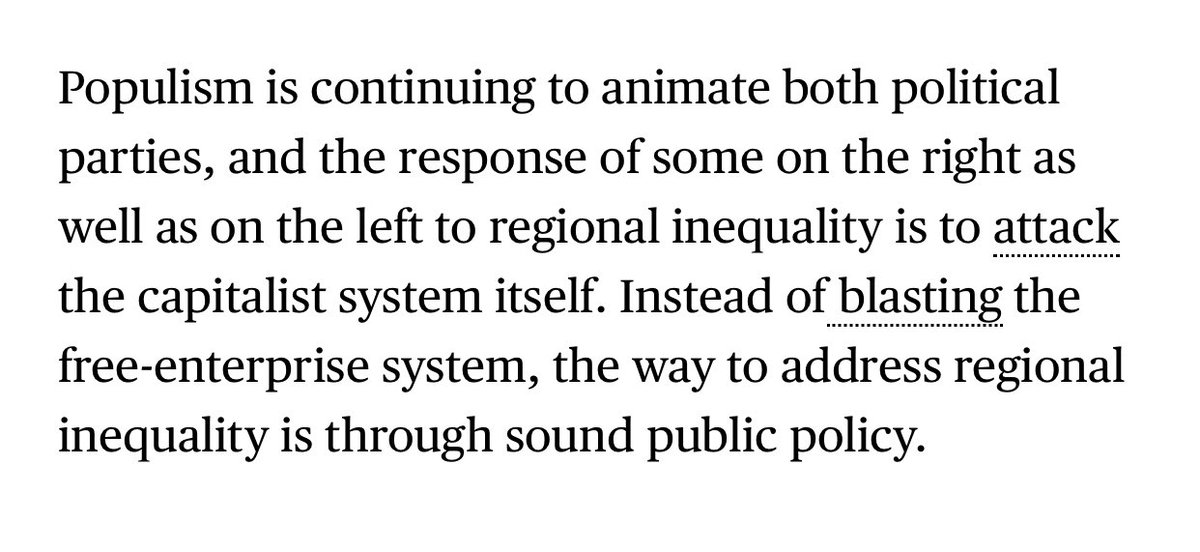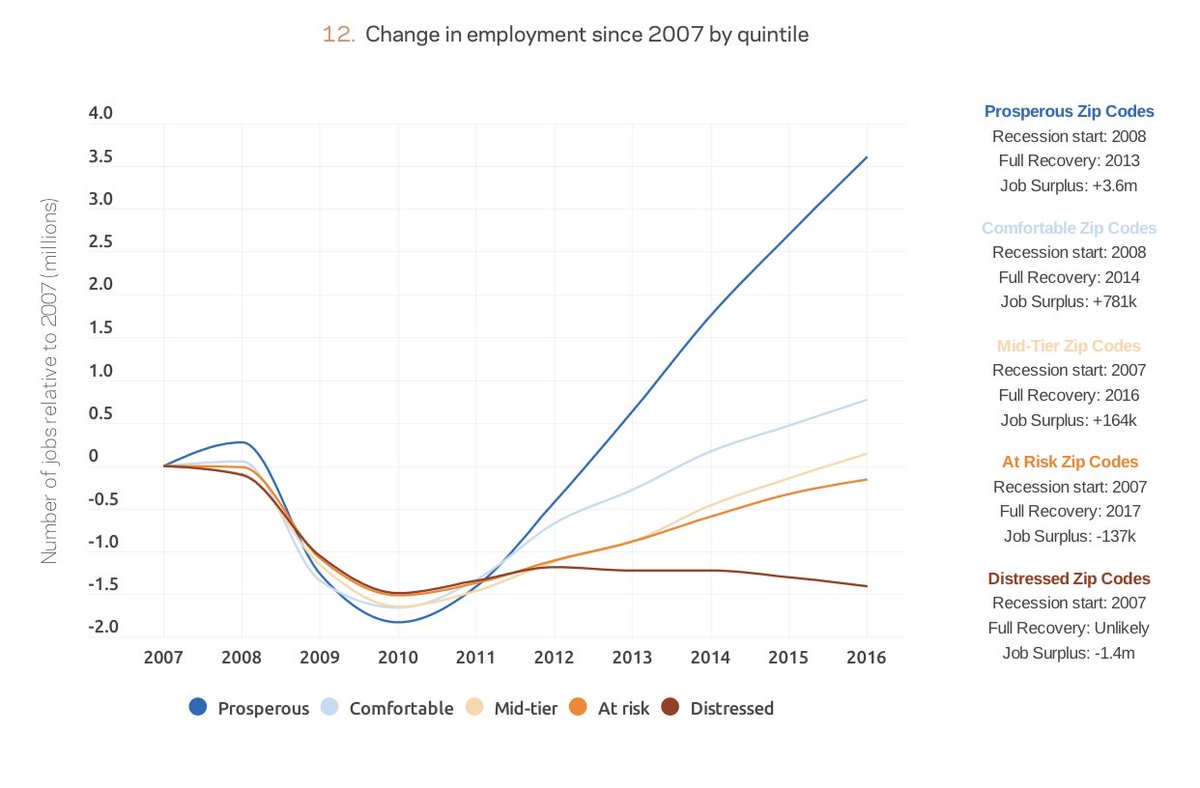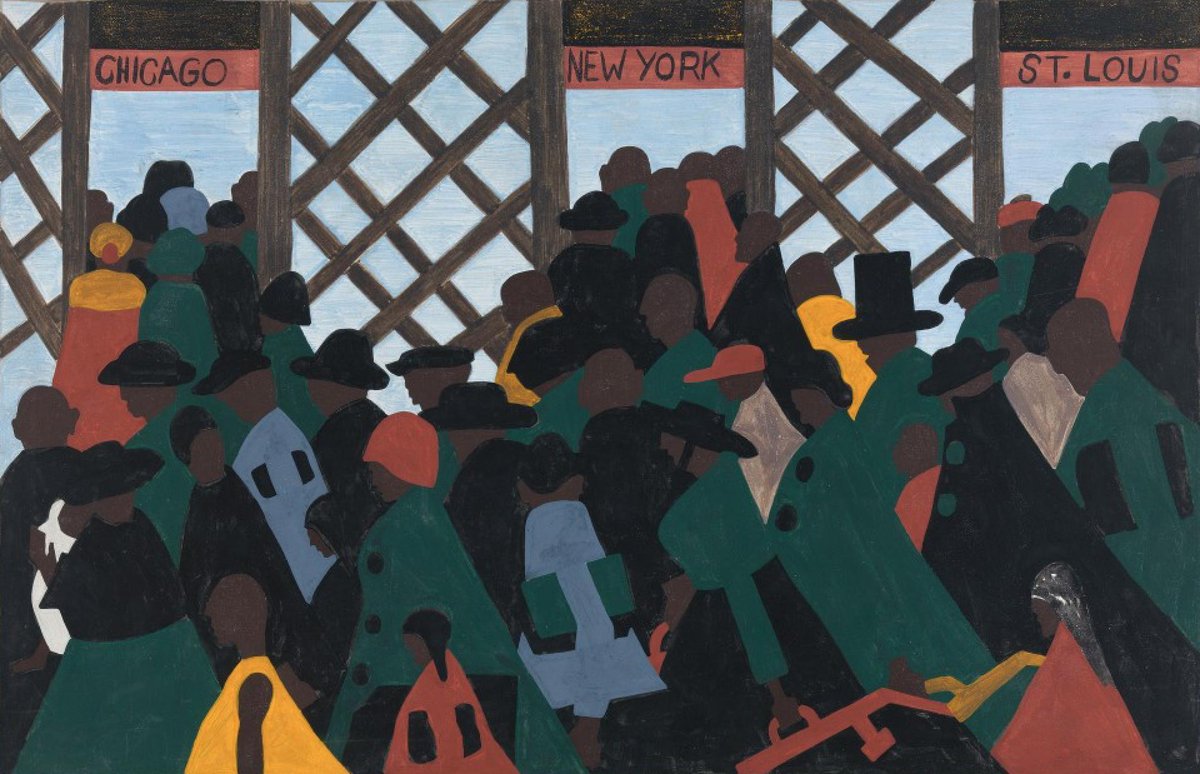In short, he argues for people-targeted policies instead of so-called “place-based” policies.
1/
bloomberg.com/amp/opinion/ar…
A relocation benefit could make sense as part of a broader toolkit for struggling people and places.
1) Many people simply do not want to move, for reasons that go well beyond financial considerations,
2) The cost of the move is one thing, but the cost of *living* in opportunity-rich places is arguably a bigger barrier,
That’s okay — none of these is a reason not to try such an approach. They just illustrate why complementary approaches are needed.
As he notes, there are many reasons why “just move” is not an adequate response to the challenge.
Most are going to stay put.
So what can be done for those people and their communities?
“Place” was the blind spot in our national debate for too long. That is only now starting to change.
eig.org/dci
We don’t need to choose one or the other, and we’re not doing nearly enough in either category.
eig.org/heartland-visa
After all, what good is moving if you can’t afford to live where the jobs are? Or if you can’t take a good job because of a noncompete?
The real issue is that we have a policy infrastructure that heavily favors affluent people, places, and firms. That’s not capitalism’s fault. It’s the result of choices.

We’ve chosen not to provide much in the way of resources to help struggling areas weather economic shifts or reinvent themselves.
It should be equally obvious that there’s no single solution. We need to try more things and be experimental at every level.
The recovery from the Great Recession was overwhelmingly fueled by the growth of thriving places. Meanwhile, distressed areas as a cohort saw continued decline.
eig.org/wp-content/upl…

In the meantime I’m glad that smart folks like @MichaelRStrain are highlighting the challenge of regional disparities and putting ideas on the table. /End














